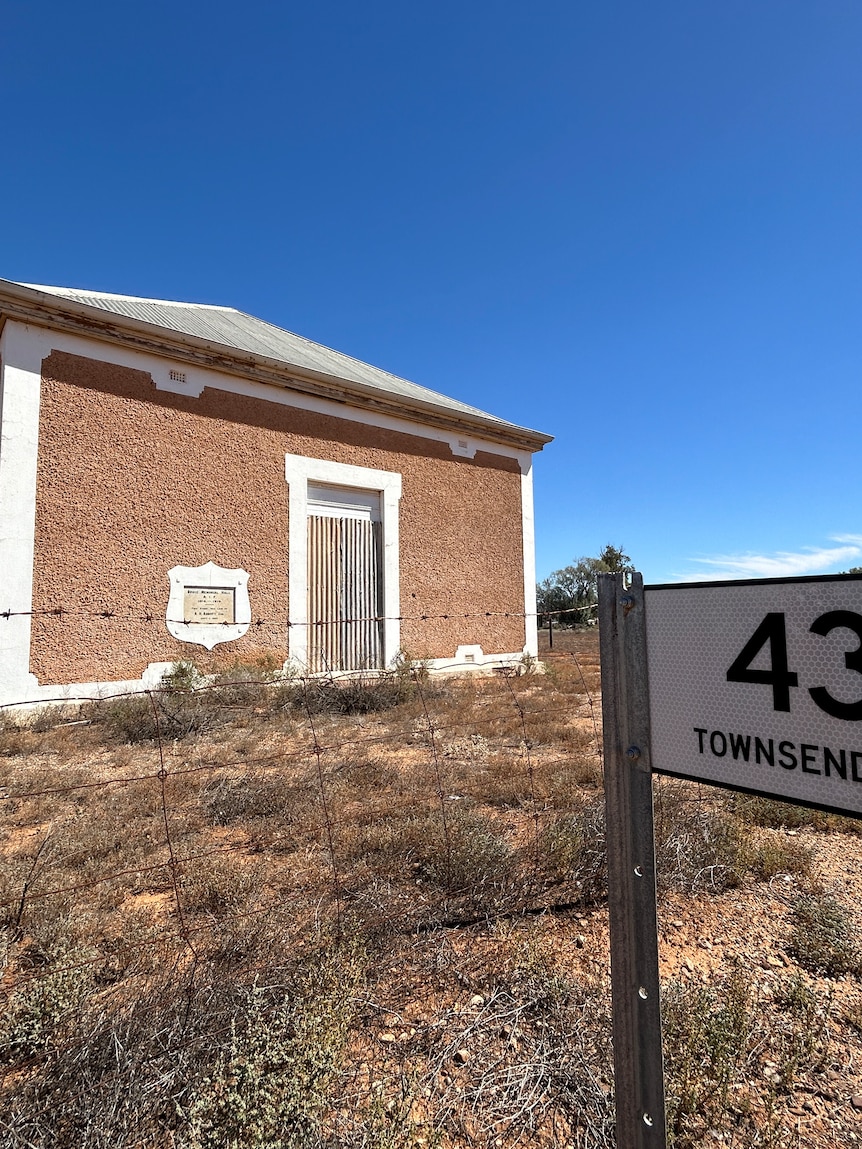A community in South Australia’s Mid North is dealing with the “disappointing” sale of its local hall to a private buyer, due to more than $20,000 of backdated unpaid council rates from the deceased owners.
The Bruce Memorial Hall, about 300 kilometres north of Adelaide, sold for $26,000 at a public auction held by the District Council of Mount Remarkable on March 13.
Paula Osborn, a fourth generation Bruce resident, said the community had tried to negotiate with the council to ensure the hall was not sold.
She said the hall’s ownership was supposed to have been taken over by the council years ago.
“I know this council now is not responsible for what a council did 20-odd years ago, but there should be some record there of what should have been done by the council back then,” Ms Osborn said.
“The people whose [name] the actual land title is in are decades ago passed away.
“We did make contact with the Mount Remarkable chief executive who didn’t want to meet with us prior to the sale.
“It’s disappointing … that the council weren’t willing to have a chat with us.
“They hadn’t acknowledged the fact that they’d wiped under the carpet that they were meant to have taken over [the hall’s ownership] many years ago and it didn’t happen.”
The council tried to sell the property in 1999 and again in 2000 due to the non-payment of council rates, but the sale was withdrawn both times.
Ms Osborn said after the second withdrawal, “from that moment, as far as the community knew, the council had taken ownership of the hall”.
“So we never challenged anything because we always thought the council owned it,” she said.
District Council of Mount Remarkable chief executive Sam Johnson said the hall was sold under section 184 of the Local Government Act, which enables councils to sell properties with rates outstanding for more than three years.
“Based on our own internal position and our legal opinion … the Bruce Hall was never owned by council, it was never officially transferred to council, hence why it was applicable under a section 184 process,” he said.
“There was only one request coming through to myself requesting more information … which was responded to, and that response sought the information referred to within the correspondence, and nothing was ever received.”
The ABC has endeavoured to contact the hall’s buyer to find out what they plan for the property, given its remote location and run-down state.
However, they have so far remained anonymous.
Other halls revived and repurposed
Other regional towns are also being forced to consider the future of their own town halls and public buildings.
The Port Augusta Town Hall has been repurposed into accommodation, with 12 long-term stay accommodation rooms.
Building owner and property developer Jeevan Deut said “heritage conversion to accommodation works really well”.
“People like the feel of staying in a boutique, bespoke heritage building,” he said.
The property once included a town hall, courthouse, council offices, mayoral suites, ballroom, supper room and a 500-seat theatre.
Mr Deut said it was evident locals had “strong connectivity to the building”.
“A lot of people … when we were doing construction stuff, would come in and they’d tell stories about kissing the first girlfriend… or all these great hijinks they had with the ballroom dancing, and watching movies,” he said.
“I think it would have been a disservice to the town had it been demolished.”
Mr Deut said there were some advantages to selling community buildings to private buyers.
“Governments have a lot of heritage on their registers … and then they’re often in council control,” he said.
“Councils don’t want to spend the money maintaining them, because they can’t afford to, or they don’t want to.
“They really should be pushed out to the private sector and worked with, otherwise they fall into decay, and they go too far, and then it creates a big cyclical problem.”
Meantime, in the Clare Valley, the Auburn Institute has returned to community ownership.
Auburn Community Development Committee (ACDC) chairperson Rhonda Seymour said it was run by a council committee.
“But there came a time when council wanted to relieve itself of those responsibilities,” Ms Seymour said.
In 2016, the hall’s suspended ceiling started to fall, forcing it to be closed.
The Clare and Gilbert Valley Council gifted the Auburn Institute to ACDC in 2017 with $220,000 for renovations, and it was reopened in 2018.
“We’re thankful that it’s now back in community hands,” Ms Seymour said.
She said making the institute accessible to all was an important part of the renovations.
“You shouldn’t have a community building that some people can’t access, that’s just not acceptable,” she said.
Tony Evans, the chairperson of an ACDC charged with managing the Auburn Institute, said the hall was now run by the community.
“It’s purely volunteer-based,” he said.
“The whole idea is … you maintain a level of enthusiasm to ensure that the community take an active role in looking after their asset.”
Mr Evans said locals used the hall “wherever possible”, and the subcommittee put on its own events, including markets, fetes, and even a French festival.
“It’s very much a centrepiece of the township,” Mr Evans said.
“It’s for the community, run by the community, for the community’s benefit.”




